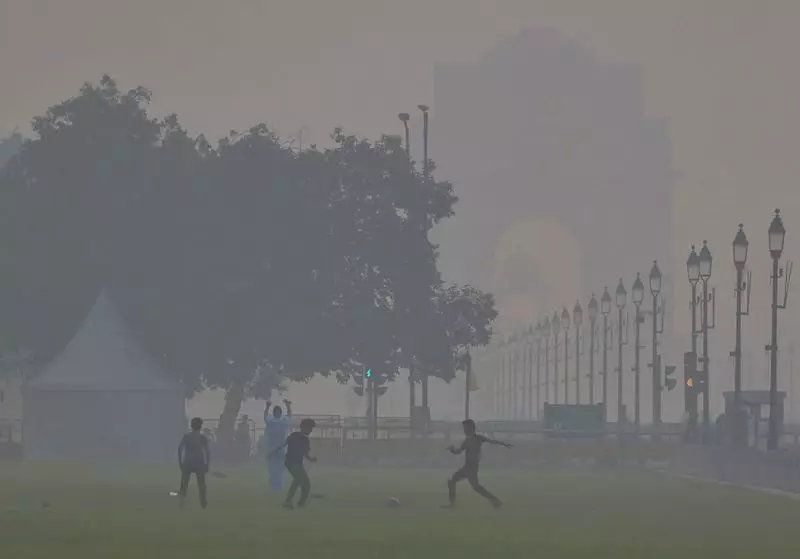
Delhi's atmosphere has taken a severe hit as the city's air quality plummeted to the 'very poor' category on Tuesday, creating concerning environmental conditions for residents. The primary culprit behind this deterioration appears to be significantly reduced wind speeds that have failed to disperse accumulating pollutants effectively.
According to the latest data from the System of Air Quality and Weather Forecasting and Research (SAFAR), the overall Air Quality Index (AQI) for Delhi registered at 302, firmly placing it in the 'very poor' classification that poses health risks to the general population.
City-Wide Pollution Hotspots Emerge
The pollution situation varies across different monitoring stations, painting a grim picture of the capital's air quality crisis:
- Delhi University area recorded an AQI of 318
- Mathura Road station showed 306
- Pusa area registered 305
- IIT Delhi vicinity measured 304
- Lodhi Road area reported 302
- Indira Gandhi International Airport (Terminal 3) recorded 301
Meteorological Conditions Worsening Crisis
Weather experts point to specific atmospheric conditions that have contributed to the current air quality emergency. Exceptionally slow wind movement has created a stagnant air mass over the region, preventing the natural dispersion and dilution of harmful pollutants that accumulate from various sources including vehicle emissions, industrial activities, and other urban pollution contributors.
The reduced wind speeds have essentially trapped pollutants close to ground level, creating a toxic blanket over the city that poses significant health concerns, particularly for children, elderly residents, and those with pre-existing respiratory conditions.
Health Implications of 'Very Poor' Air Quality
When AQI levels enter the 'very poor' category between 301-400, health authorities typically issue warnings advising vulnerable groups to limit outdoor exposure. Prolonged exposure to such air quality can lead to respiratory distress, aggravated asthma symptoms, eye irritation, and increased risk of respiratory infections.
Medical professionals often recommend that Delhi residents monitor air quality updates regularly and take necessary precautions, including using N95 masks outdoors and employing air purifiers indoors during periods of severely compromised air quality.





